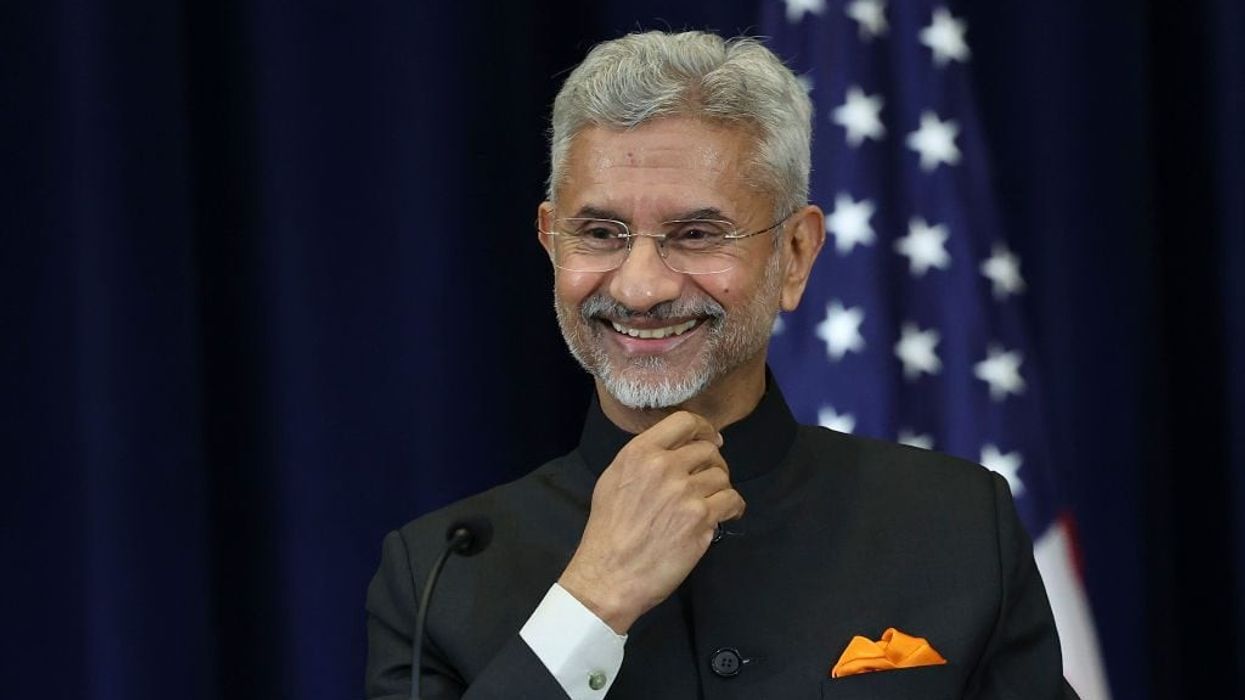INDIA's external affairs minister S Jaishankar has said that in the next 25 years, the country’s Amrit Kaal as espoused by prime minister Narendra Modi, India will strive to be a developed country and it is “logical” that it also seeks to be a global power.
Jaishankar, speaking at the Council on Foreign Relations in New York on Tuesday (26), said India is now the fifth largest economy in the world, “obviously your interests are more, your responsibilities are more, your contributions are more”.
The minister added that there will be many more countries and regions with which you are linked. “So one part of it I would say really flows from the growth, from the rise of India.”
“You actually see an India today whose footprint is more, whose interests and activities are more. The second is really the structure of the world itself. We have seen particularly over the last maybe four or five years in many ways, more openings, the nature of world politics has changed,” he said, adding that the issues have changed, including technology and energy.
The minister said he would not be “uni-causal” about it and there “are a variety of issues which are driving what is clearly a heightened Indian activity and in a way we are also planning ahead”.
“Today, prime minister Modi speaks about planning for the next quarter of a century. We have a particular Indian term for it,” he said, making a reference to ‘Amrit Kaal’.
“The goal is really a quarter century from now, we should strive to be a developed country. That’s the goal at home. But if you look at the consequences of that, I think in that quarter century, it would be logical that we would also seek to be a global power.
“If you’re going to have a global interest and a global footprint, then it takes time to prepare it. You’re not going to turn on a switch and suddenly become global,” he said.
“A lot of what we are trying to do, we are trying to do today’s interest, maybe the next decade, but also the next quarter of a century, all at the same time,” he said.
In his address to the UN General Assembly, Jaishankar noted that all nations pursue their national interests. “We, in India, have never seen that as being in contradiction with global good. When we aspire to be a leading power, this is not for self-aggrandisement but to take on greater responsibility and make more contributions. The goals we have set for ourselves will make us different from all those whose rise preceded ours,” he said.
In his remarks at the think tank, Jaishankar also referred to initiatives that India has fashioned like the International Solar Alliance and the Coalition for Disaster Resilient Infrastructure.
“World politics, international order is changing and we are very much at the cutting edge of that,” he said.
When asked if India sees itself as trying to be positioned as the bridge between the North and the South and the East and the West, Jaishankar said: “To a considerable extent, yes, but in a way I’m simplifying it because it’s not always possible, it’s not always desirable, to necessarily stay in the middle”.
“There will be issues where you would want to do that. There will be other issues where it may not be feasible to do that. So depending on the issue in question, the positioning would adjust to that,” he said.
“India has entered the Amrit Kaal, a quarter century where greater progress and transformation awaits us. We are confident that our talent and creativity, now so visibly unleashed, will power us forward. The world saw a glimpse of what’s to come when our Chandrayaan-3 landed on the moon”.
(PTI)





